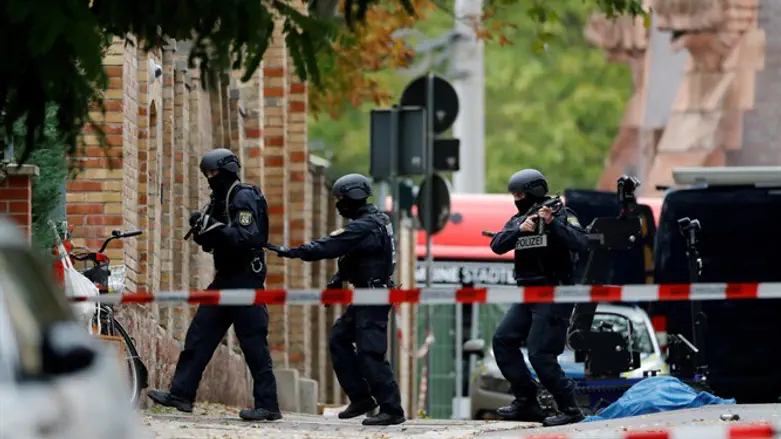
A new report from an anti-Semitism monitor in Germany found that reported incidents rose following the attack on a Halle synagogue last Yom Kippur, JTA reports.
“The public perception of the topic of anti-Semitism was strongly marked by the far-right terrorist attack on a synagogue in Halle on Yom Kippur,” the Federal Association of Departments for Research and Information on Anti-Semitism (RIAS) wrote in releasing the report this week.
The report highlights 1,253 registered anti-Semitic incidents in 2019 across four federal states, including Berlin.
The inclusion of reporting from Brandenburg, Schleswig-Holstein and Bavaria was added to the study this year.
In the Halle attack, two people were killed near the synagogue when the gunman could not enter the building. The suspect was charged with murder and attempted murder in late April.
The anti-Semitism report found that a political background in far-right circles tended to be a theme of those who committed anti-Semitic attacks, especially in the northern state of Schleswig-Holstein, where far-right, anti-Semitic ideology is expressed openly. It also claims to show that anti-Semitism goes beyond political background.
RIAS looked at a variety of overlapping anti-Semitic motives in its reporting, including Anti-Semitic Othering, Anti-Judaism, Modern Anti-Semitism, Israel-Focused Anti-Semitism and Post-Shoah Anti-Semitism.
The largest motivation, post-Shoah anti-Semitism, accounted for 46% of incidents and refers typically to the Holocaust and various denials of Nazi Germany’s crimes.
A report released in 2018 found that Germany had seen an increased number of attacks on Jews during the first half of that year.
Chancellor Angela Merkel vowed to tackle hatred after the Halle attack.
The German government promised at the end of November to introduce a law making it possible to increase penalties when a crime involved an anti-Semitic motive.
